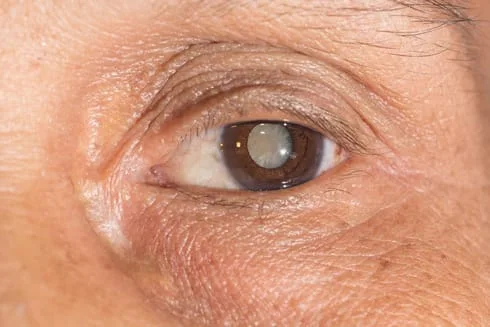As we age, our vision will progressively deteriorate. Although this isn't a fun part of aging, you can reduce the risk of vision disorders, such as cataracts, negatively affecting your life by visiting our optometrist in Virginia Beach, VA. Vision disorders are common in older people, so it's important to follow up with our eye doctor and receive the best eyecare treatment possible.
If you've been diagnosed with cataracts, our team at Atlantic EyeCare in Virginia Beach, VA, will provide the best eye care possible so you don't suffer from vision loss. We'll help you determine the best course of action to take to prevent your cataracts from growing worse.
What Are Cataracts?
Cataracts is an eye disease that affects the ability of someone to see clearly. A buildup of protein in the eye will deteriorate and cause a cloudy film to develop over the lens. This makes it difficult to see clearly, due to the lens being responsible for filtering light and providing images to the eye. Cataracts affect many adults aged 80 and over. It is a common condition with symptoms that may include:
- Cloudy film over the eye
- Cloudy or hazy vision
- Blurry vision
- Double vision
- Trouble seeing at night
- Seeing halos around the eye
- Needing extra light to see clearly
- Partial or total vision loss
These symptoms can affect one or both eyes. Our eye doctor will determine if your symptoms are caused by cataracts or another vision disorder.
Treatment For Cataracts
Our eye doctor can determine the appropriate course of treatment for your cataracts. Usually, people with advanced cataracts and vision loss will have to have cataract surgery in order to alleviate their symptoms. This is surgery that involves replacing the clouded lens of the eye and replacing it with an artificial lens. Your eye doctor will determine if this is right for you or try and help your vision through eyeglasses or contact lenses.
Fortunately, cataract surgery is very safe and is well tolerated by patients. Cataract surgery is the only true "cure" for cataract, although a secondary cataract is possible. This can be treated using laser surgery.
Using cataracts surgery and follow-up care from our eye doctor, you can start to see clearly and improve your overall quality of life.
Contact Us to Get Help for Your Cataracts at Atlantic EyeCare
At Atlantic EyeCare, our optometrist in Virginia Beach, VA will provide eye care to help you find relief from your cataracts. Call us today to set up an appointment and see how we can help you. Call us at (757) 340-7070.


